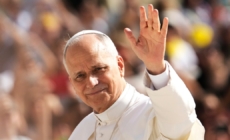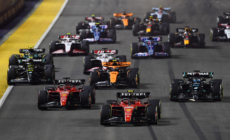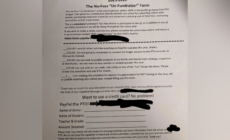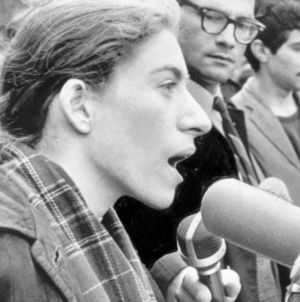At an informal EU summit in Copenhagen, member state leaders discussed European defense and Ukraine’s potential accession. While no official decisions were made, the talks aimed to prepare for the formal summit on October 23. Hungary remains the only member state opposing Ukraine’s EU membership, with Prime Minister Viktor Orbán the sole leader blocking consensus on the bid.
Ahead of the summit in Denmark, the Prime Minister warned of a “difficult day” and firmly restated his opposition to Ukraine’s EU accession. He said the process cannot be initiated through “legal tricks” or by circumventing Hungary, adding that while some member states quietly share his concerns, few are willing to say so publicly.
The Hungarian position is that a strategic agreement needs to be concluded with Ukraine, not membership, because its accession would mean that the EU would be drawn into the Russian-Ukrainian war,
he stressed.
In addition, he said, a significant portion of EU funds would go to Ukraine if the country joined the Union.
Viktor Orbán outlined the main issues on the summit’s agenda, all of which he opposes. The first is that they want to make political decisions so that the European Union, including Hungary, recognizes the Ukrainian-Russian war as its own war, he explained. The second is that, accordingly, the EU would give even more money to Ukraine, and the third is that Ukraine’s membership should be accelerated. As a consequence of this, a fourth issue is that “we should not buy oil and gas from Russia,” he said.
Meanwhile, European Council President António Costa proposed moving away from unanimous decision-making on enlargement and allowing qualified majority voting to launch accession talks. According to Politico, António Costa’s idea quickly divided EU leaders. Although many publicly criticize Hungary’s veto, in private, several countries — including France, the Netherlands, Greece, and Denmark — oppose losing their own blocking rights.
While the Hungarians are “obviously” blocking Ukraine, the Bulgarians, for instance, are against North Macedonia’s accession, the Croats are seeking to block Serbia’s EU bid, the Greeks and Cypriots have concerns about Türkiye, and Greece is also closely monitoring Albania’s accession process,
an unnamed EU diplomat told Politico.
Changing the EU’s unanimity rule itself would require unanimous approval from all 27 member states — including Hungary — making it highly unlikely, the Brussels news portal points out. This exposes a growing rift within the EU, as member states quietly defend the veto power they publicly criticize. While the EU maintains a united front on Ukraine’s integration, many see PM Orbán’s veto as a safeguard for their own national interests.
After the summit, Viktor Orbán spoke of tense debates and strong criticism, particularly with Croatia, the European Commission, and Germany, Magyar Nemzet reports. He also criticized the Hungarian opposition for pressuring the government to align with Brussels on cutting ties with Russian energy.

Prime Minister Viktor Orbán (third row, R2) at the informal summit of the European Union at Christiansborg Palace in Copenhagen on October 1. In the front row are Ursula von der Leyen, President of the European Commission (R2), and António Costa, President of the European Council (R5). Photo: MTI/Miniszterelnöki Kommunikációs Fõosztály/Fischer Zoltán
He rejected the claim that Ukraine is Europe’s “first line of defense,” stating: “There are those who say bluntly that Hungary is not in a moral position to do so, or that it is Hungary’s duty, or, as they said today, that Ukraine is the first line of defense for European security. I must say that this is not the case. It may be so for you, but Hungary does not consider Ukraine to be the first line of military defense.”
According to the Prime Minister, the EU’s strategy is to defeat Russia in a “war of attrition.” Hungary does not agree with this: “There is no solution on the front line, hundreds of thousands of people will die on both sides,” he warned.
Viktor Orbán believes that a long-term agreement should be negotiated with the Russians on a new European security system, in which Ukraine’s place must also be found.
The head of government also noted that Hungary does not support Ukraine’s EU membership, but instead offers a strategic partnership. In his view, “once you are a member, those rights cannot be taken away from you,” and Ukraine’s economic impact on the EU would be unpredictable.
Following the summit, the Prime Minister issued a strong statement on X the next day, warning that “the situation is serious” and that “outright pro-war proposals” had been put forward during the meeting.
He claimed that
EU leaders are seeking to divert EU funds to Ukraine, accelerate its accession through “legal tricks,” and finance arms deliveries — steps which, according to him, indicate that “the Brusselians want to go to war.”
PM Orbán reiterated that he would firmly uphold Hungary’s position and warned that the coming months will be marked by “the threat of war.” He called for the support of Hungary’s entire political community and of “every Hungarian who longs for peace.”
Related article
Central Europe Warns against Sacrificing Regional Security for Ukraine Aid

At a high-level defense summit in Bratislava, Hungary and its regional partners vow stronger cooperation, call for peace efforts in Ukraine, and push for faster EU integration of the Western Balkans.Continue reading
Via MTI, Politico, Magyar Nemzet; Featured image: MTI/Miniszterelnöki Kommunikációs Fõosztály/Fischer Zoltán
The post Viktor Orbán Defends Veto as Safeguard for Hungary’s Interests in EU Debate appeared first on Hungary Today.
Source link




























